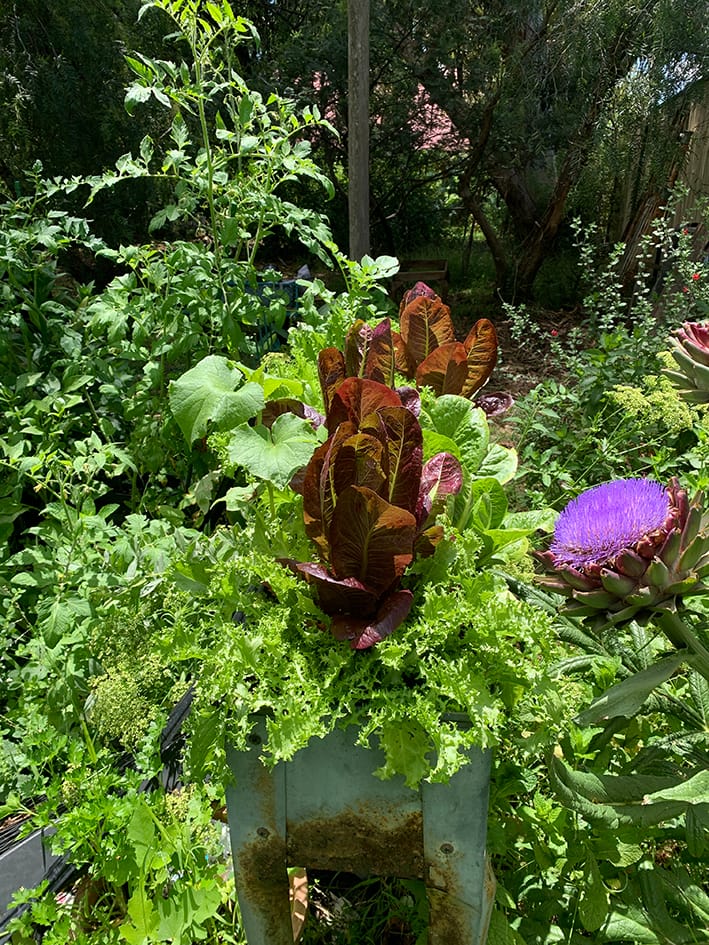Summer in ‘tropical’ Victoria
With our weather recent combination of heat and wet our gardens have responded with tropical style growth – especially the veggies!

While it’s pretty exciting to see the tomato plants and cucumber vines triple in size over a week, a summer that’s unusually rainy can create some challenges for gardeners. While rain that falls from the sky is undoubtedly more beneficial than any hose watering, (we know that because the plants just look happier!), excessive rainfall or unseasonable weather can lead to a variety of problems. Here are a few of the most common issues that gardeners may face during a rainy summer:
• Root rot and fungal diseases - Excess moisture in the soil can prevent proper drainage, which can then lead to waterlogged roots and perhaps root rot or fungal diseases.
Solution - Improve soil drainage by adding organic matter, such as compost or sand, to the soil. For plants in containers, ensure pots have proper drainage holes. Reduce watering and remove any affected plants to prevent the spread of disease.
• Mould and mildew - Humid, damp conditions create an environment where mould and mildew can flourish, particularly on leaves and stems of plants. This is especially common with plants that are susceptible to fungal infections, like cucumbers, tomatoes, and squash.
Solution - Prune affected areas and remove fallen leaves as they can harbor spores. Consider using organic fungicides or neem oil. Ensure plants have good airflow to help them dry out faster after rain.
• Pests - Wet conditions attract various pests, such as slugs, snails, and certain types of caterpillars. These pests thrive in damp environments and can quickly damage tender plant foliage and vegetables.
Solution - Pick the pests off or use organic deterrents – or put copper barriers around plant bases to slugs and snails from climbing.
• Weeds - Unfortunately excess rain promotes the rapid growth of weeds as well as the veggies, particularly in areas that are already fertile. Weeds can out-compete your garden plants for sunlight, water, and nutrients.
Solution - Stay on top of weeding by manually removing them as they sprout (yes - easier said than done!). Using mulch (such as straw or wood chips) around your plants can help suppress weed growth.
• Fruit splitting - Continuous rainfall can lead to fruit splitting, especially for soft fruits like tomatoes, cherries, apricots and plums. The rapid influx of water causes the fruit to absorb moisture faster than it can expand, leading to cracks or splits in the skin.
Solution - If you see splitting fruit, harvest it immediately to prevent further damage. Make sure to prune plants for better air circulation to reduce excess humidity around the fruit.
These are just a few of the challenges of a wet summer – if the current forecast holds no doubt we will see if there are more over the next few weeks!




